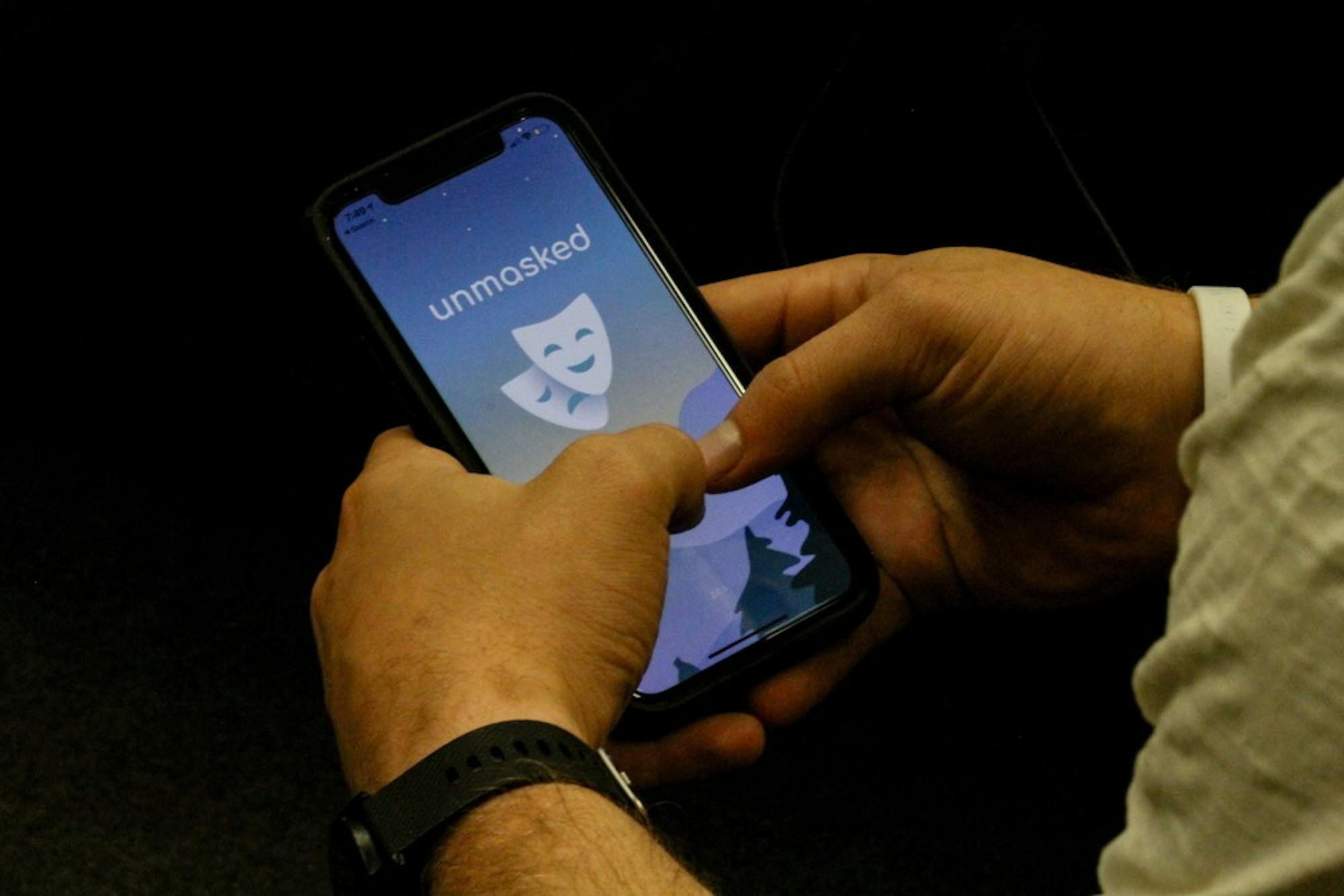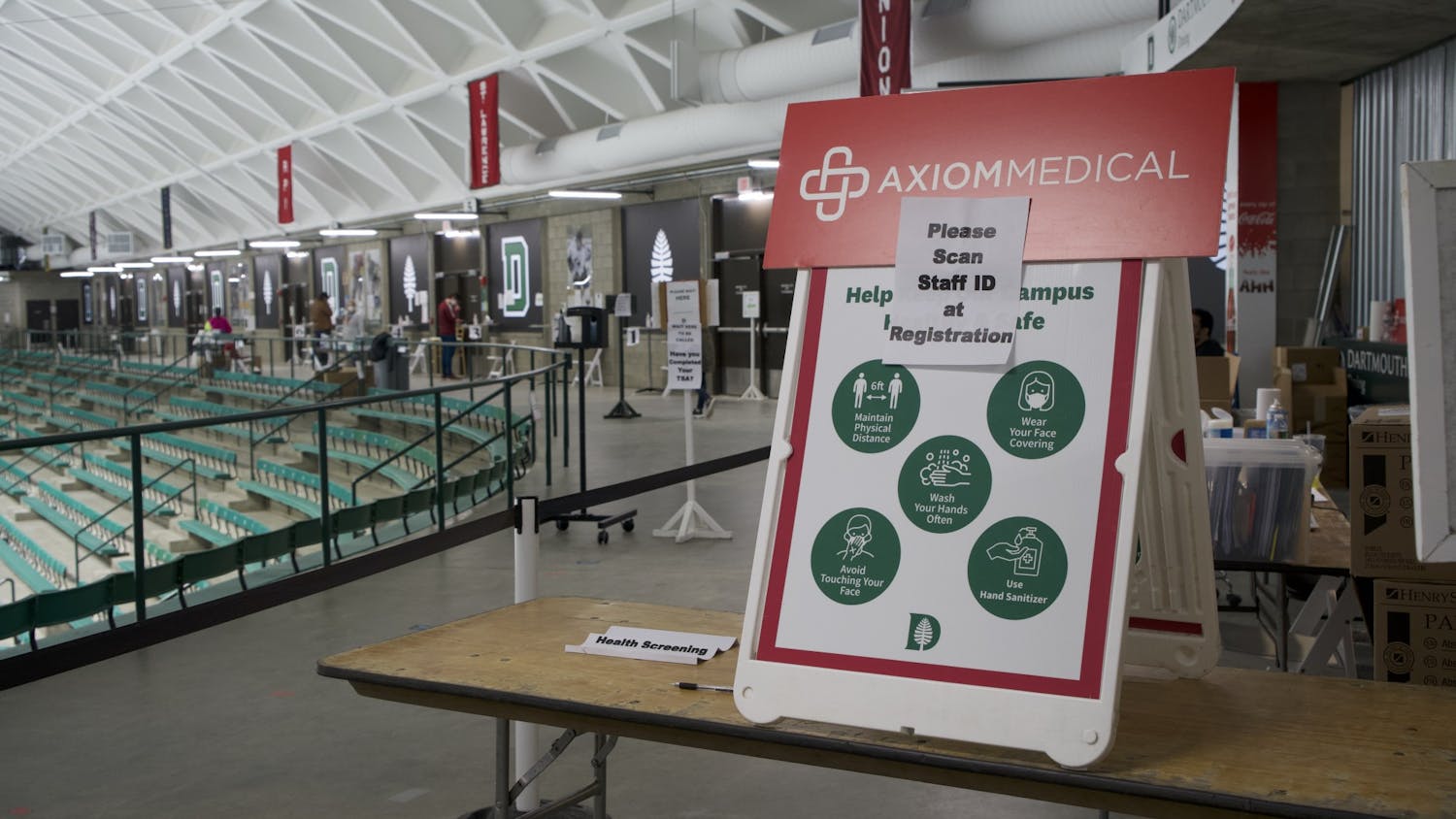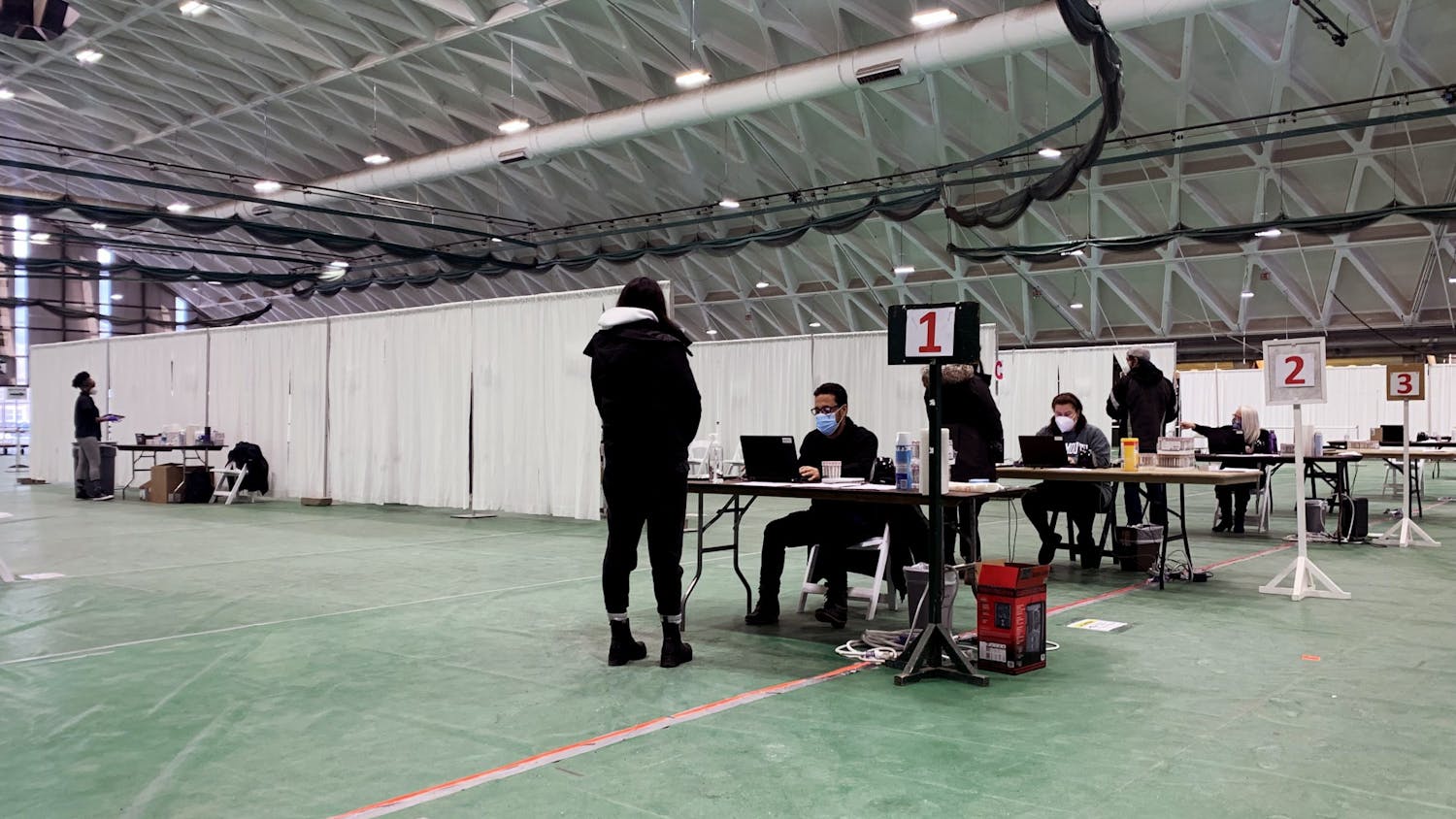Updated March 10, 2021 at 2:40 p.m.
Dartmouth students in search of mental health support now have the chance to talk with therapists via virtual counseling sessions, thanks to a collaboration between the student-run mental health app Unmasked and teletherapy platform Uwill. Announced in December, this partnership has enabled students to access Uwill’s large network of therapists after registering via Unmasked.
Founded a year ago, Unmasked is a mobile application focused on mental health that features an anonymous message board designed to facilitate peer support. According to founder and CEO of Unmasked Sanat Mohapatra ’20, the idea of a partnership with the teletherapy company was initially brought to the Unmasked team by a student moderator who was familiar with Uwill. Recognizing that students on Unmasked were “both looking for peer support and professional mental health services,” Mohapatra said that the Unmasked team saw the benefit of a collaboration. Uwill CEO and founder Michael London added that he had heard “really good things” about Unmasked.
The Unmasked team then came up with a model in which a free trial of Uwill’s teletherapy services has been made available to Dartmouth students. After the trial, those who decide to continue utilizing Uwill’s counseling sessions can purchase two additional sessions for $150 or 10 sessions for $600. According to Mohapatra, Unmasked will not receive any monetary benefit from the promotion.
“I think my priority was generally just offering more mental health services to Dartmouth students,” Mohapatra said.
Jimmy Nguyen ’21, a student moderator on the app, added that Unmasked pushed for the free trial sessions so that a wide array of students might be inclined to try Uwill’s services.
“We focused on making [the first counseling session] free so it’s more accessible to students who might be of different socioeconomic [backgrounds], but also just making it convenient for people who want to use the service,” he said.
In addition to its new services, the platform has adjusted its community guidelines in response to an incident last July involving a Dartmouth student who was involuntarily hospitalized after expressing suicidal thoughts and disclosing a timeline to commit suicide on the platform. At the time, Mohapatra said that the student’s communications had crossed the line for law enforcement involvement as outlined in the app’s community guidelines, to which users agree when they sign up.
According to the new guidelines published on the Unmasked website, the app will not reach out to law enforcement and will instead refer students to “professional resources” if a post “demonstrates a serious perceived threat to self or others.”
If a user is under “imminent risk of death, or serious bodily harm to self or others, resistant to attempts to connect them with crisis resources, unwilling to make a safety plan and unwilling to reach out for help themselves,” Unmasked will hand over a user’s data to campus security, whose discretion it would then be to take further action. Unmasked’s previous policy allowed for data turnover if a user simply showed an “imminent threat to self or others.”
In addition, Unmasked has added more senior moderators to its team — students, all of whom have experience working with mental health organizations such as Crisis Text Line, according to Mohapatra.
He also noted that the team is working with campus securities to ensure that officers have the “appropriate mental health crisis intervention training” and is also working with “local crisis intervention teams” in the hopes of being able to offer non-police alternatives in crisis scenarios.
Last spring, spurred by the COVID-19 pandemic, Unmasked began branching out and expanding to other universities.
“I'd say the pandemic definitely added a sense of urgency to our work, where we wanted to expand to a lot of colleges during 2020 because we knew that a lot of students could benefit from having access to a mental health peer support space,” Mohapatra said. “It made me want to increase the scale of the app faster.”
Currently, Unmasked’s services are available at 37 schools. Throughout 2020, Unmasked saw an increase in app usage. In January, the app saw 15,000 app sessions. According to Mohapatra, by the end of 2020, Unmasked had registered a total of 366,000 app sessions.
With the collaboration with Uwill underway, Mohapatra said that Unmasked currently has “no quantitative goal” other than to continue providing mental health services to college students.
“I think my goal is generally to provide mental health services to as many college students as possible, especially those that come from underprivileged backgrounds and don't have the funding to access traditional forms of mental health care, like therapy, [because it] is expensive,” Mohapatra said.
Correction appended (Jan. 28, 2021):
A previous version of this article incorrectly stated that the idea of a partnership with Uwill was brought to the Unmasked team by a student moderator who had previously worked with Uwill. The article has been updated to reflect that the student did not work with Uwill, but was familiar with the company.
A previous version of this article also incorrectly stated that there was a 100-student limit to the free trial of Uwill’s teletherapy services, and students could purchase one additional session for $150. The article has been updated to reflect that there is no student limit to the free trial, and students can purchase two sessions for $150. Additionally, the previous version incorrectly stated that Unmasked turns over at-risk users’ whereabouts to campus security. The article has been updated to reflect that Unmasked will only hand over a user’s data to campus security.
Additionally, previous wording incorrectly implies that Unmasked directly works with campus securities to provide mental health crisis intervention training. The article has been updated to reflect the fact that the Unmasked team helps ensure campus securities have access to these trainings, but Unmasked itself does not offer them.
Correction appended (March 10, 2021): A previous version of this article included a quote from Mohapatra that incorrectly stated that Unmasked's new senior moderators have experience working with campus security. That quote has been removed.
Daniel Modesto ’24 is the News executive editor. He is from Brooklyn, New York, and is a Native American and Indigenous Studies major modified with Latin American, Latino and Caribbean Studies.




